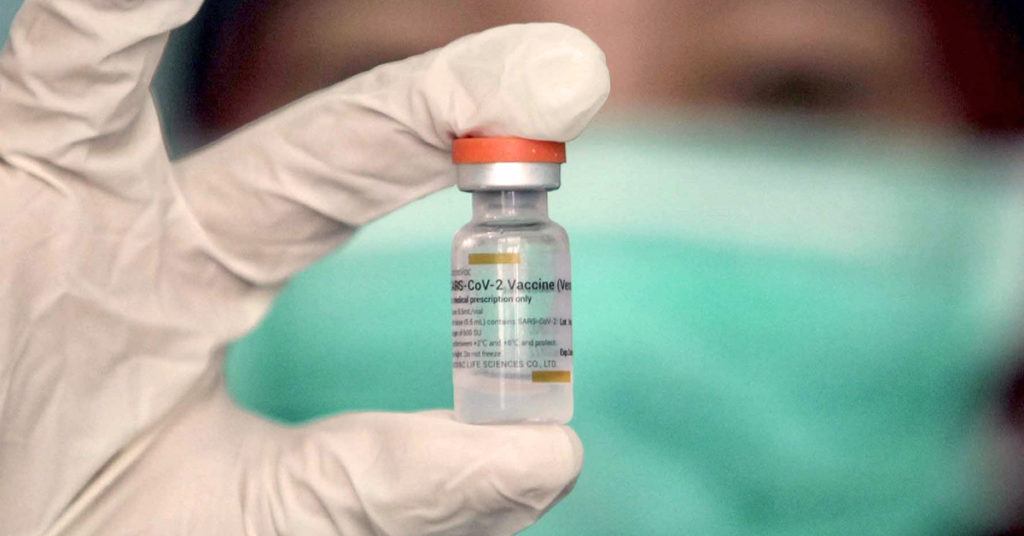Why Sinovac is recommended for Comorbidities

Introduction
Coronavirus Disease 2019 (COVID-19) vaccinations are now considered a global standard protocol recommended by the World Health Organization (WHO) and Centers for Disease Control and Prevention (CDC) to help prevent complications and decrease the number of mortalities against Severe Acute Respiratory Syndrome Coronavirus 2 (SARS-CoV-2).
The following vaccines are now widely used, some still with ongoing phases of their clinical trials: Oxford AstraZeneca, Gamaleya (Sputnik V) and Janssen which are all composed of a viral vector, Moderna and Pfizer BioNtech which used RNA (part of virus genetic code), Novavax which is based on protein based and Sinovac (CoronaVac) type as inactivated virus (weakened virus). AstraZeneca and Sinovac are the currently used vaccines in the Philippines, noting AstraZeneca that had presently identified thrombosis or “blood clot” as an adverse effect of the vaccine in some countries in Europe.
All about Comorbidities
Comorbidities apply to individuals with pre-existing medical conditions such as chronic respiratory, cardiovascular, cerebrovascular diseases, hypertension, diabetes, and other immunodeficiency illnesses. Worldwide observations indicate that people aged 60 and above, and people of any age-group with noted comorbidities have increased risk of getting infected with moderate, severe and critical cases of COVID-19 that usually result to problems with airway, breathing and circulation, the three main indicators to emergency situations. The mentioned group are prioritized by the government and medical authorities due to the nature of their body conditions that cause amplified number of hospitalizations and deaths among all COVID-19 patients. In line with this, Sinovac (Coronavac) vaccine has now been recommended by the Philippines Vaccine Expert Panel to be inoculated for the said population.
From this reference, the Department of Health (DOH) had already announced that Sinovac are specified to be given to ages 18-59 years old with controlled comorbidities, whereas AstraZeneca will be allotted for ages 60 and above, aligned with the indications of the emergency use authorization (EUA). People with uncontrolled comorbidities are not advised to get vaccinated due to the unforeseeable circumstances that might happen post vaccination. In addition, noticeable side and adverse effects during and after vaccination will not be identified appropriately. For an instance, if this will be caused merely by the vaccine or just because an individual wasn’t able to take his maintenance medications?
The Preference for Sinovac
Other issues that might arise include the immune system that might not respond well from the vaccine, again defeating its purpose. Apart from the current issues of AstraZeneca from its possible link to unusual blood clots, why is Sinovac (Coronavac) recommended to patients with comorbidities?
The current successful efficacy findings of clinical trials phases in Brazil, Turkey and Indonesia for Sinovac vaccine, in addition with the dilemma of COVID-19 vaccines available in the country are the top reasons for the use of Sinovac vaccine as an alternative option approved given the rising number of active COVID-19 vaccines in the country. From the ABS-CBN News Channel (ANC) coverage with Dr. Edsel Salvaña, a member of Inter Agency Task Force (IATF) Technical Advisory Group, the clinical trials proved that Sinovac vaccines are best for general population with moderate risk exposure. Efficacy results in Brazil yielded 50.4% in mild, 78% in moderate and 100% in severe cases. Indonesia had noted 65% efficacy while Turkey had generated 83.5% efficacy rate in their overall population. With the given clinically evidenced-based studies, Sinovac vaccines are certainly evident to protect against the severe disease based on the DOH framework.
Why are there different efficacy rates? Several factors had to be considered. An aspect to be measured are those individuals that are previously infected with the COVID-19 infection but then got vaccinated. This group is traceable to have more protection against the virus since they already have the natural antibodies produced by the immune system when they got infected. One more facet to be seen are the studies regarding the interval of the COVID-19 vaccine doses. Some had done it between the second, third and fourth week intervals. The study concluded that the longer duration of vaccine interval optimizes the effectiveness of the vaccine. The IATF Technical Advisory Group has strong convictions that the expected efficacy of vaccines during real-life use will be similar from the clinical trials, but also projected that it will not be a 100% executed identically due to issues in chains and roll-out of the vaccines.
Conclusion
Herd immunity, which means that a larger population are immune to a certain virus or illness, is the ultimate end goal of this COVID-19 vaccination to end the global pandemic. However, vaccines are delayed not only in the Philippines as other countries are also working hard to get their own supplies.
As herd immunity may not be the most attainable as of the moment, prioritization is given over population with comorbidities as to protect them from severe complications and prevent further increase of mortality rates in the country. Since the supply of AstraZeneca are now very limited as of the moment, and yet the reports of active COVID-19 cases are still on the rise, an immediate and efficient solution would be to vaccinate more people the soonest time possible, given that Sinovac vaccine is the only currently available. By the reassuring outcome of its conducted clinical trials, it is way better to be protected from COVID-19 than none at all.
References:
- www.rappler.com
- www.youtube.com/watch?v=znnJXU_cSGg
- www.doh.gov.ph
